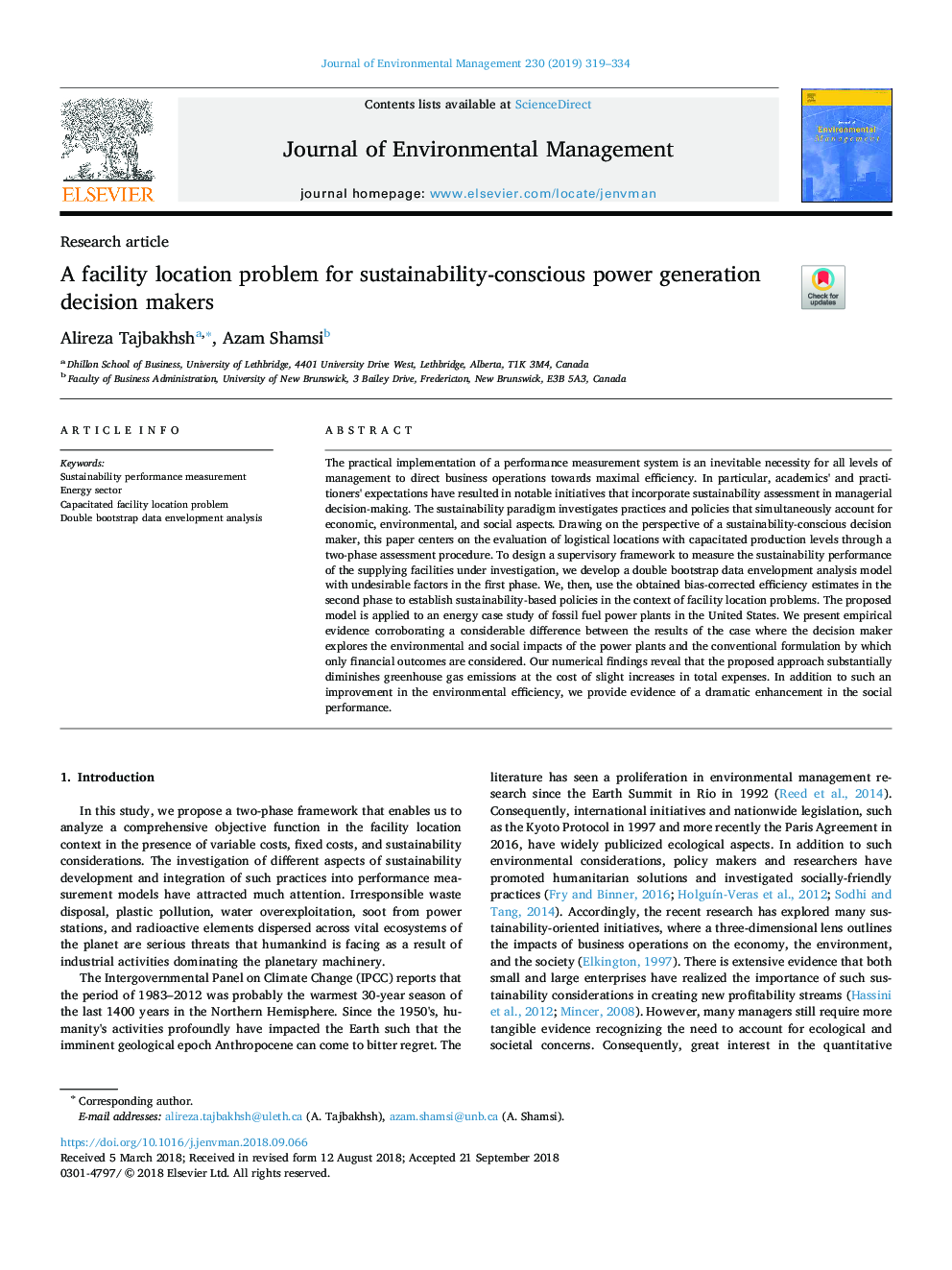| Article ID | Journal | Published Year | Pages | File Type |
|---|---|---|---|---|
| 11023251 | Journal of Environmental Management | 2019 | 16 Pages |
Abstract
The practical implementation of a performance measurement system is an inevitable necessity for all levels of management to direct business operations towards maximal efficiency. In particular, academics' and practitioners' expectations have resulted in notable initiatives that incorporate sustainability assessment in managerial decision-making. The sustainability paradigm investigates practices and policies that simultaneously account for economic, environmental, and social aspects. Drawing on the perspective of a sustainability-conscious decision maker, this paper centers on the evaluation of logistical locations with capacitated production levels through a two-phase assessment procedure. To design a supervisory framework to measure the sustainability performance of the supplying facilities under investigation, we develop a double bootstrap data envelopment analysis model with undesirable factors in the first phase. We, then, use the obtained bias-corrected efficiency estimates in the second phase to establish sustainability-based policies in the context of facility location problems. The proposed model is applied to an energy case study of fossil fuel power plants in the United States. We present empirical evidence corroborating a considerable difference between the results of the case where the decision maker explores the environmental and social impacts of the power plants and the conventional formulation by which only financial outcomes are considered. Our numerical findings reveal that the proposed approach substantially diminishes greenhouse gas emissions at the cost of slight increases in total expenses. In addition to such an improvement in the environmental efficiency, we provide evidence of a dramatic enhancement in the social performance.
Related Topics
Physical Sciences and Engineering
Energy
Renewable Energy, Sustainability and the Environment
Authors
Alireza Tajbakhsh, Azam Shamsi,
